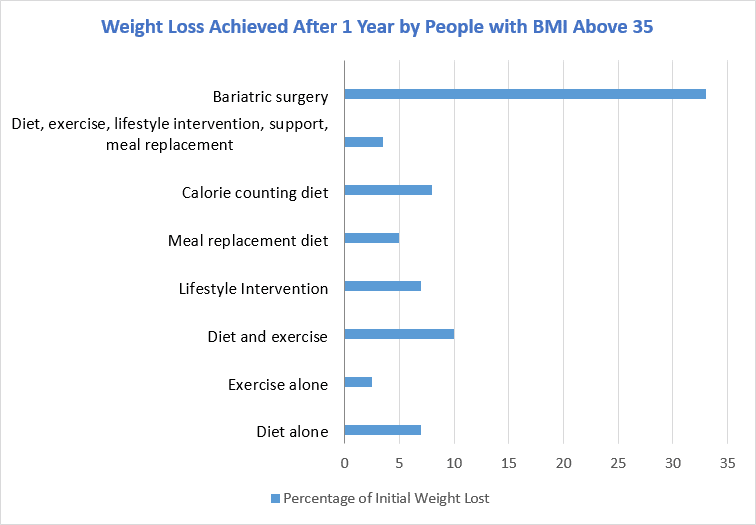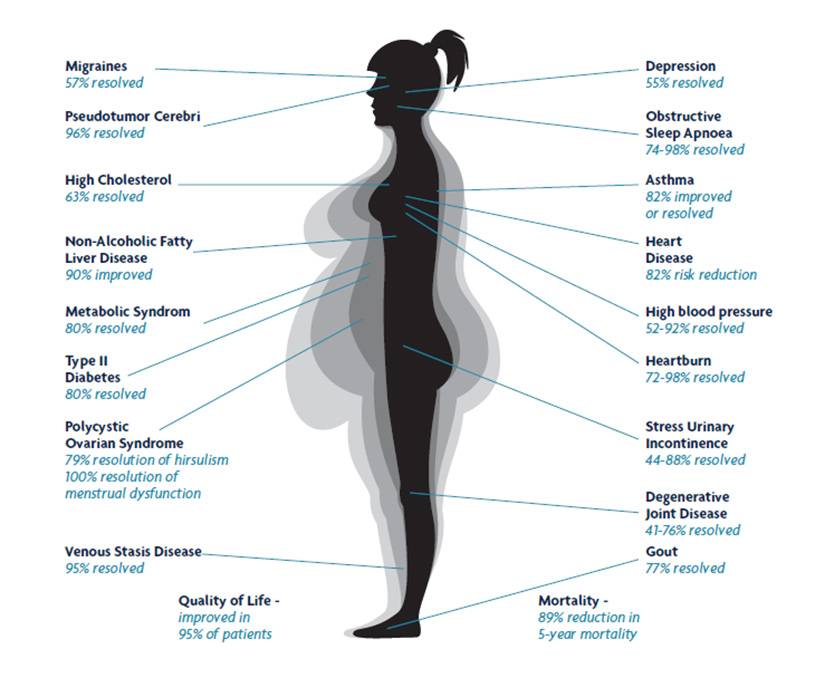Weight Loss Surgery… It’s not just about losing weight
The World Health Organisation now recognises obesity as a chronic, progressive disease associated with a number of health issues.
Obesity is no longer considered just a cosmetic issue, brought on by a lack of self-discipline.
In America, the National Institutes of Health (NIH) states that people with obesity are resistant to sustaining weight loss through traditional methods of reducing calorie intake and increasing exercise. Instead, it recognises weight loss surgery as the only effective long-term treatment for severe obesity.
Obesity affects every system in the body. Research has shown that people who are overweight or obese have higher rates of death and illness than people of healthy weight.
Obesity has overtaken smoking as the leading causes of preventable death in Australia. To learn more about the health risks of obesity, read our section on the dangers of obesity.
Fortunately, obesity can be treated, and weight loss can reverse most of the damage.

For people with severe obesity, lifestyle changes such as diet and exercise typically lead to long-term weight loss of between 5 to 10 per cent of excess weight. While this is regarded as a good medical result, it is less likely to improve associated health problems.
Weight loss surgery produces far greater results. Gastric sleeve and gastric bypass typically produce sustained weight loss of between 60 to 80 per cent of excess weight, with some people achieving up to a 100 per cent loss. This sustained weight loss often improves or resolves the medical problems associated with obesity, leaving patients healthier with fewer medical problems.
